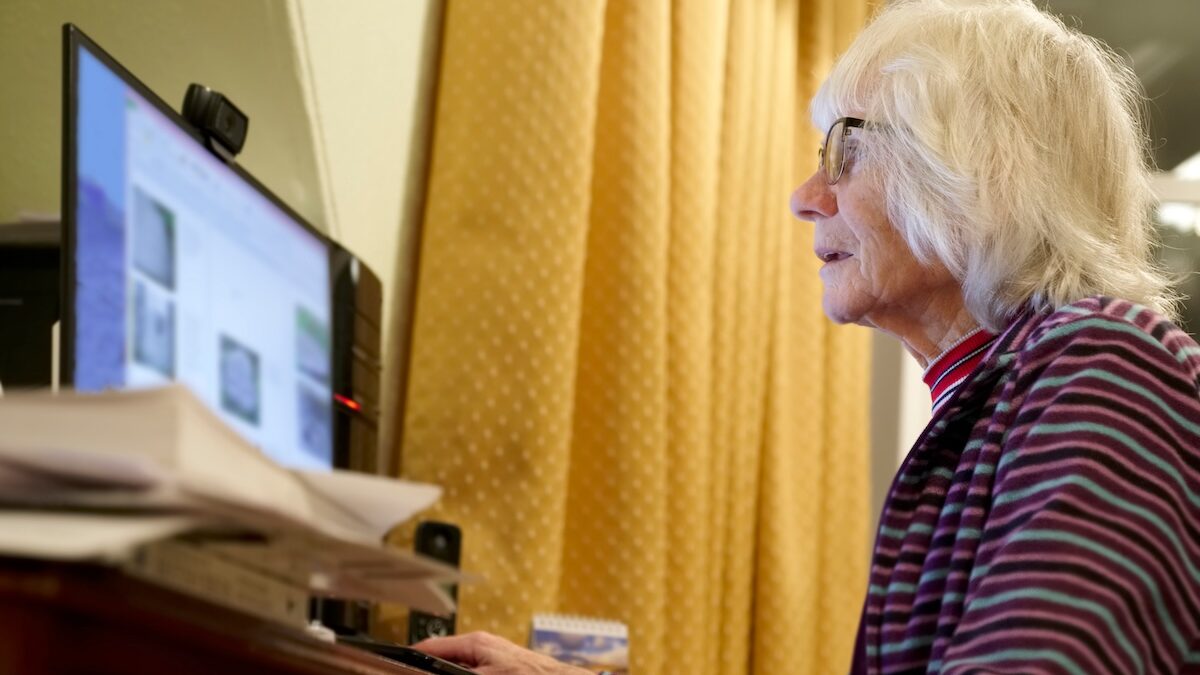A cyber safety guide has been re-launched after worrying statistics showed 400,000 older people in Scotland have been targeted by online scams.
The Cyber and Fraud Hub – launched by the Cyber and Fraud Centre – Scotland – has reissued the materials to help senior citizens stay safe on the internet.
The guide was signposted to mark International Day of Older Persons today, and aims to address a wide range of web crime.
Those include cryptocurrency scams, scam text messages and fake phone calls or emails impersonating trusted organisations such as banks.
While a rapid rise in cases were seen across all age groups, older people are particularly more susceptible, according to research from Age Scotland.
Incidences of fraud crime against this age demographic in Scotland are rising, as scammers take advantage of their relative unfamiliarity with technology, and potentially more trusting nature.
Originally produced by the Cyber and Fraud Centre Scotland, A Guide to Avoiding Fraud and Scams for Older People addresses some of the most common forms of cyber and fraud crime, and will be distributed through local community networks as well as being available online.
Alex Dowall, Head of Fraud and Cyber at the Cyber and Fraud Hub, said: “Anyone of any age can fall victim to a scam and fraud attempts are on the increase for all age groups, however we have noticed a huge increase in scammers repeatedly targeting older people.
“The Hub was launched to offer Scotland’s only dedicated cyber support for all members of the public. We understand that our older residents are less likely to access online and social media platforms, so we are encouraging people to have a conversation about our guide with their older friends, family and neighbours to empower them to be as vigilant as possible against fraud and scam attempts.”
The Cyber and Fraud Hub is the first charity of its kind in Scotland, offering comprehensive support tailored specifically to individuals affected by cyber and fraud crimes. The Hub is built on strong relationships with Police Scotland and the banking sector, and its mission is to ensure that members of the public across Scotland receive the support they need when they are most vulnerable.
Since the Cyber and Fraud Hub launched, the team has dealt with around £250k of crypto frauds across all age groups and stopped or prevented around £60k from being transferred to fraudsters. Victims of crypto currency scams usually engage with individuals who are unknown to them through unsolicited approaches on WhatsApp, Facebook or dating apps, for example, or click on links by AI generated celebrities supposedly promoting crypto scams.
Other common scam and fraud attempts affecting older people most commonly include telephone scams, banking scams, WhatsApp family and friends impersonation scams, parcel delivery scams and investment and pension scams.
International Day of Older Persons raises awareness of opportunities and challenges faced by ageing populations, and to mobilise the wider community to address difficulties faced by older people. While the day focuses on many issues, Cyber and Fraud Hub urges older people to:
- Be cautious of unexpected calls, emails, or letters.
- Never give out personal information over the phone or email.
- Be suspicious of any offers that sound too good to be true.
- Shred personal documents before throwing them away.
- Talk to someone you trust about your finances.
To access the guide, visit the Resources section on the Cyber and Fraud Hub at cyberfraudhub.org. Anyone who finds themselves a victim of a cyber or fraud crime can call the incident response helpline on 0808 281 3580.




